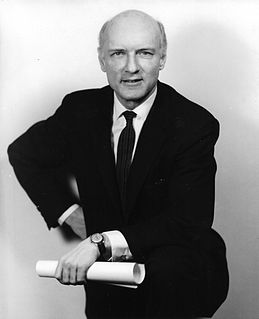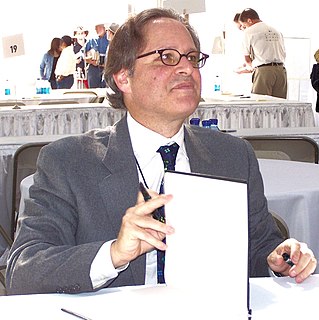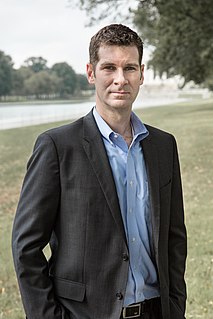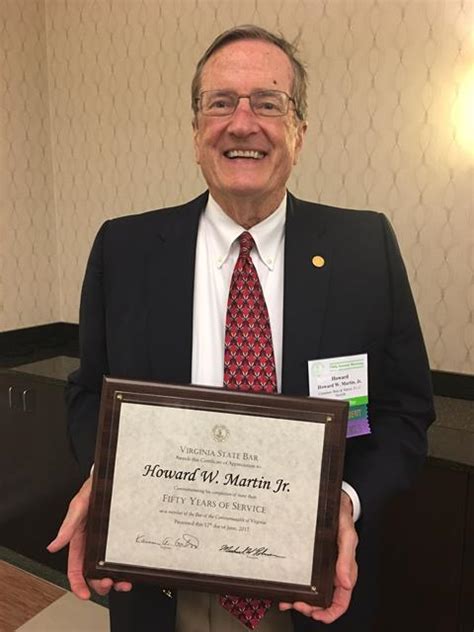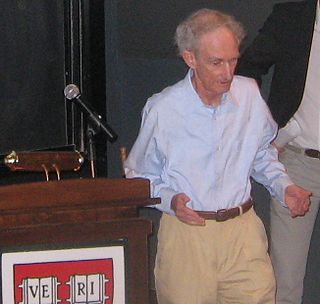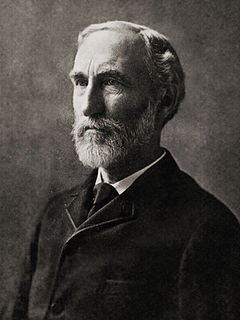Top 1200 Management Systems Quotes & Sayings - Page 6
Explore popular Management Systems quotes.
Last updated on April 22, 2025.
Morality is neither rational nor absolute nor natural. World has known many moral systems, each of which advances claims universality; all moral systems are therefore particular, serving a specific purpose for their propagators or creators, and enforcing a certain regime that disciplines human beings for social life by narrowing our perspectives and limiting our horizons.
For the blue-collar worker, the driving force behind change was factory automation using programmable machine tools. For the office worker, it's office automation using computer technology: enterprise-resource-planning systems, groupware, intranets, extranets, expert systems, the Web, and e-commerce.
Resilience, timing, adaptation - these are the three pillars upon which the emergent properties of interacting systems rest. When the systems are the economy and the environment, understanding of the relationships among these concepts is crucial. This volume does a better job of explaining how to manage both money and nature to ensure humanity's long-term future than any other work I know of. Read and reflect.
I was applying to the art school, but there was a checklist that said I had to do either production design or stage management or acting. I thought, "I don't want to be an actor, but I know production and stage management take acting classes" - this is literally my internal monologue. I was like, "Designers don't have to take acting classes. Cool. I'll check that box".
A preventive war, to my mind, is an impossibility today. How could you have one if one of its features would be several cities lying in ruins, several cities where many, many thousands of people would be dead and injured and mangled, the transportation systems destroyed, sanitation implements and systems all gone? That isn't preventive war; that is war.
All of us in a bipartisan manner went out of our way to explain to the voters how our election systems are secure, the fact that voting systems are not connected to the Internet - not the machines that we use to mark ballots, not the machines that we use to count ballots, the fact that our election counting procedures are very transparent.
When I was working at the game company, I wasn't just doing graphic design, I was doing the entire product management, so I would do the graphic design, I would create the advertisements, even the catch copies. I would figure out what kind of packaging and design of the packaging, so I was basically doing total product management at that time.
Invest in low-turnover, passively managed index funds... and stay away from profit-driven investment management organizations... The mutual fund industry is a colossal failure... resulting from its systematic exploitation of individual investors... as funds extract enormous sums from investors in exchange for providing a shocking disservice... Excessive management fees take their toll, and manager profits dominate fiduciary responsibility.
It makes no sense to seek a single best way to represent knowledge-because each particular form of expression also brings its particular limitations. For example, logic-based systems are very precise, but they make it hard to do reasoning with analogies. Similarly, statistical systems are useful for making predictions, but do not serve well to represent the reasons why those predictions are sometimes correct.
In the current environment, attributing low student performance to teacher tenure is one of the great unproven causal links out there. The relationship just hasn't been examined very carefully, but we should all recognize that in higher education the strongest institutions generally have the most robust tenure systems, and in elementary and secondary, the states with the strongest teacher unions (and tenure systems) tend to have the highest student performance.
We are made up of an entire parliament of pieces and parts and subsystems. Beyond a collection of local expert systems, we are collections of overlapping, ceaselessly reinvented mechanism, a group of competing factions. The conscious mind fabricates stories to explain the sometimes inexplicable dynamics of the subsystem inside brain. It can be disquieting to consider the extent to which all of our actions are driven by hardwired systems doing what they do best while we overlay stories about choices.
As we build systems that are more and more complex, we make more and more subtle but very high-impact mistakes. As we use computers for more things and as we build more complex systems, this problem of unreliability and insecurity is actually getting worse, with no real sign of abating anytime soon.
Contemporary technology could be used to eliminate ownership and management of corporations. It could be used to provide - lets say Apple computers. In principle information technology could be used to provide direct information to the work force on the ground so that they could democratically decide what the company would do, eliminating the role of management. It could be used for that. People aren't developing technology for that purpose.
The good news is that there is strong movement in this direction of shifting from domination systems to partnership systems. Over the past several hundred years, one progressive movement after another has challenged traditions of domination - from the 18th century "rights of man" movement challenging the "divinely ordained right" of kings to rule their "subjects" to today's environmental movement challenging the once hallowed "conquest of nature."
The problem is not just the cost of the ships, but that the swapping was supposed to be quick, but right now it can take days or weeks, which is more like traditional refitting. But the model of modularity and being able to take on different roles is a good one. This is where adding in unmanned systems in the future will be an aid. If they can carry them onboard, whether it be drones to mine or sub-hunting underwater systems, all ships should be able to do such multiple roles simultaneously.
I found marketing to be highly descriptive and prescriptive, without much of a foundation in deep research. I brought in economics, organization theory, mathematics, and social psychology in my first edition of Marketing Management in 1967. Today Marketing Management is in its 15th edition and remains the world's leading textbook on marketing in MBA programs. Subsequently, I wrote two more textbooks, Principles of Marketing and Marketing: an Introduction.
The challenges, the changes we're talking about often seem to them like unbelievable opportunities to deliver a product quicker, better. If you can improve the quality, lower the cost, and improve the turns - and you can do that because your information systems, your delivery systems, are better because of technology - well, you see that as a wonderful opportunity to gain market share.
When we consciously choose a core heart feeling over a negative feeling, we effectively intercept the physiological stress response that drains and damages our systems and allow the body's natural regenerative capacities to work for us. Instead of being taxed and depleted, our mental and emotional systems are renewed. As a consequence, they are better able to ward off future "energy eaters" like stress, anxiety and anger before they take hold.
In such systems, there is unquestioning respect for authority. Faith trumps evidence. But if indeed this is broadly the explanation for how co-operative behaviour has evolved and been maintained in human societies, it could be very bad news. Because although such authoritarian systems seem to be good at preserving social coherence and an orderly society, they are, by the same token, not good at adapting to change.
Failure is a big part of a free market's success. People fail to live up to their potential, or to carry out all their good intentions, in all kinds of economic and political systems. Capitalism makes them pay a price for their failures, while socialism, feudalism, fascism and other systems enable personal failures, especially by those at the top, to be ignored.
Of all the systems of the body - neurological, cognitive, special, sensory - the cardiological system is the most sensitive and easily disturbed. The role of society must be to shelter these systems from infection and decay, or else the future of the human race is at stake. Like a summer fruit that is protected from insect invasion, bruising, and rot by the whole mechanism of modern farming; so must we protect the heart.
Holland's and Kauffman's work, together with Dawkins' simulations of evolution and Varela's models of autopoietic systems, provide essential inspiration for the new discipline of artificial life, This approach, initiated by Chris Langton (1989, 1992), tries to develop technological systems (computer programs and autonomous robots) that exhibit lifelike properties, such as reproduction, sexuality, swarming, and co-evolution.
The various systems of doctrine that have held dominion over man have been demonstrated to be true beyond all question by rationalists of such power-to name only a few-as Aquinas and Calvin and Hegel and Marx. Guided by these master hands the intellect has shown itself more deadly than cholera or bubonic plague and far more cruel. The incompatibility with one another of all the great systems of doctrine might surely be have expected to provoke some curiosity about their nature.
I'm excited about silver because as I write, it's relatively inexpensive. I'm also excited about silver because -- unlike real estate, which can require a lot of money, some finance skills, lots of due diligence and property management skills to do well -- silver is affordable to the masses, and management skills are minimum.
I think there are probably too many asset management companies in the world, and I think the place to be is either big or small. The area where it is probably more difficult to be is in the middle ground, where you've got that cost of regulation, you've got the cost of buying your own research, you've got all the costs of running an asset management company without the benefits of a big income producing asset.
I say we have not even had the decency to maintain the assets that our parents and grandparents built for us - our roads, our bridges, our wastewater systems, our sewer systems; by the way, those weren't Bolsheviks, those weren't socialists that built those things for us - much less build the infrastructure we need for the 21st century.
The only beef Enron employees have with top management is that management did not inform employees of the collapse in time to allow them to get in on the swindle. If Enron executives had shouted, "Head for the hills!" the employees might have had time to sucker other Americans into buying wildly over-inflated Enron stock. Just because your boss is a criminal doesn't make you a hero.
I think the problem is, if we foreclose any public justice, then we cut off the virtuous cycle that's represented by law, where there are public decisions which then deter misconduct in the future. We need to have both. We need to have private dispute sy-, systems, and we need to have public dispute systems.
If the suns come down, and the moons crumble into dust, and systems after systems are hurled into annihilation, what is that to you? Stand as a rock; you are indestructible. You are the Self, the God of the universe. Say - "I am Existence Absolute, Bliss Absolute, Knowledge Absolute, I am He," and like a lion breaking its cage, break your chain and be free forever. What frightens you, what holds you down? Only ignorance and delusion; nothing else can bind you. You are the Pure One, the Ever-blessed.
We find ourselves ethically destitute just when, for the first time, we are faced with ultimacy, the irreversible closing down of the earth's functioning in its major life systems. Our ethical traditions know how to deal with suicide, homicide and even genocide, but these traditions collapse entirely when confronted with biocide, the killing of the life systems of the earth, and geocide, the devastation of the earth itself.
The laws of thermodynamics, as empirically determined, express the approximate and probable behavior of systems of a great number of particles, or, more precisely, they express the laws of mechanics for such systems as they appear to beings who have not the fineness of perception to enable them to appreciate quantities of the order of magnitude of those which relate to single particles, and who cannot repeat their experiments often enough to obtain any but the most probable results.
The most important, and indeed the truly unique, contribution of management in the 20th century was the fifty-fold increase in the productivity of the MANUAL WORKER in manufacturing. The most important contribution management needs to make in the 21st century is similarly to increase the productivity of KNOWLEDGE WORK and the KNOWLEDGE WORKER.
I think that things like curses or whatever - those labels - come from belief systems, universal belief systems. So when you get a global consciousness of something, then that becomes a quote-unquote "truth" for everybody. You know, "This is what happens in the Kennedy family." "This is what happens with the Hemingways." And the more people believe in it, the more it kind of resuscitates the problem; it keeps bringing life to this idea that a curse exists that you can never get out from under.
I think that intelligent forecasting (company revenues, earnings, etc.) should not seek to predict what will in fact happen in the future. Its purpose ought to be to illuminate the road, to point out obstacles and potential pitfalls and so assist management to tailor events and to bend them in a desired direction. Forecasting should be used as a device to put both problems and opportunities into perspective. It is a management tool, but it can never be a substitute for strategy, nor should it ever be used as the primary basis for portfolio investment decisions.
Our proposal had more than just money. We would increase their staff and keep their headquarters, their brand and their management in place. We made them a comprehensive offer they couldn't refuse. Shareholders simply receive cash, but with the staff and management, we had to show that we could share the same vision. Employees would probably resent us if money were all [we offered].
Although he reputedly hated the label of 'guru', Peter Drucker was, by any standards, the greatest management guru the world has yet seen. In 1996, the McKinsey Quarterly journal described him as the 'the one guru to whom other gurus kowtow' and Robert Heller described him as 'the greatest man in the history of management', praise indeed for a man who described himself as 'just an old journalist'.
It became obvious that we had completely failed to impose rules on unbridled speculative capitalism. That destroyed financial systems, hollowed out state systems and deeply shook German social stability. Can you recall the debate about "locust" hedge funds - even if it's a terrible term. The speculator capitalists roamed the land, stealing the substance from companies and throwing away the shells. And we were powerless.
In studying language we can discover many basic properties of this cognitive structure, its organization, and also the genetic predispositions that provide the foundation for its development. So in this respect, linguistics, first of all, tries to characterize a major feature of human cognitive organization. And second, I think it may provide a suggestive model for the study of other cognitive systems. And the collection of these systems is one aspect of human nature.
There are a few societies that show signs of having been very rational about the physics of construction and the physics of real life. Some of the old middle-Eastern societies had downdraft systems over whole cities, and passive, rapid-evaporation ice-making systems. They were rational people using good physical principles to make themselves comfortable without additional sources of energy.
If you create networks that allow people in their own local systems to have power and agency and sovereignty in their own systems. The idea that people could just know what's happening with their data. You could work with the platform, in communication with it, more than "I'm just like experiencing as a blind person in a black box".
We need to take responsibility for the effect of our environment on our nervous systems, and particularly the nervous systems of our children. No wonder so many of them are diagnosed with all the stuff they're diagnosed with today. Modern technology is a blessing to be sure, but it's also a curse if we allow it to pull us out of our spiritual center. A 24 hour electronic onslaught comes at the expense of our deep humanity and our deepest relationships.
I believe Washington should be a more active participant focusing on the issue of why corporate shareholders and mutual fund shareholders are not given fair treatment by corporate management and mutual fund management. We need to develop a national standard of fiduciary duty to ensure that these agents, if you will, are adequately representing the principles - pension beneficiaries and mutual fund shareholders - whom they are duty bound to serve.
Virtue is as little to be acquired by learning as genius; nay, the idea is barren, and is only to be employed as an instrument, in the same way as genius in respect to art. It would be as foolish to expect that our moral and ethical systems would turn out virtuous, noble, and holy beings, as that our aesthetic systems would produce poets, painters, and musicians.
The tragic reality is that very few sustainable systems are designed or applied by those who hold power, and the reason for this is obvious and simple: to let people arrange their own food, energy and shelter is to lose economic and political control over them. We should cease to look to power structures, hierarchical systems, or governments to help us, and devise ways to help ourselves.
A possibility is that we see more and more leverage, and credit-to-GDP ratios rise once more to even higher levels; eventually the banking systems of all advanced economies reach magnitudes of 500 percent, 1000 percent or more of GDP, so that every economy starts to have financial systems that resemble recent cases like Switzerland, Ireland, Iceland, or Cyprus. That might be a very fragile world to live in.
What is most original in a man's nature is often that which is most desperate. Thus new systems are forced on the world by men who simply cannot bear the pain of living with what is. Creators care nothing for their systems except that they be unique. If Hitler had been born in Nazi Germany he wouldn't have been content to enjoy the atmosphere.
The PFOA, PFOS is is a real concern and people need to be concerned about it and the water systems need to be concerned about it. But when you only focus on that, it could take resources away from other issues or problems that the water systems have diverted to just this. And this may not be a huge problem in every community.
Having studied biology really helped me a lot because I quickly understand how biological systems work, and how they fail, and the tragedy of when they fail, because we are dealing with life systems, and when we hear that a species has become extinct, or is threatened, you realize that this could mean that this species will disappear from the face of the earth forever! So that understanding really gives you energy to do something to save it.
Instead of focusing on what the law says about trans people, which is really what the law is saying about itself as a protector of trans people, we should be focused on what systems of law and administration do to trans people and our interventions should aim to dismantle harmful, violent systems such as criminal punishment and immigration enforcement.







